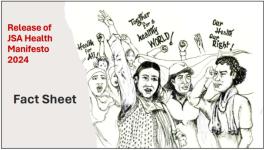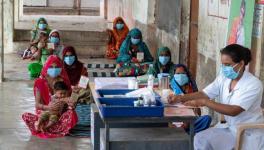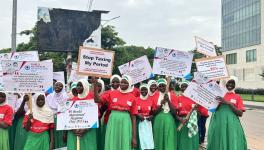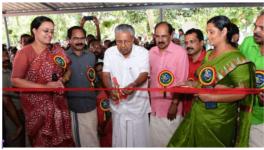ICD-11, a Milestone in Era of Digital Technology: WHO
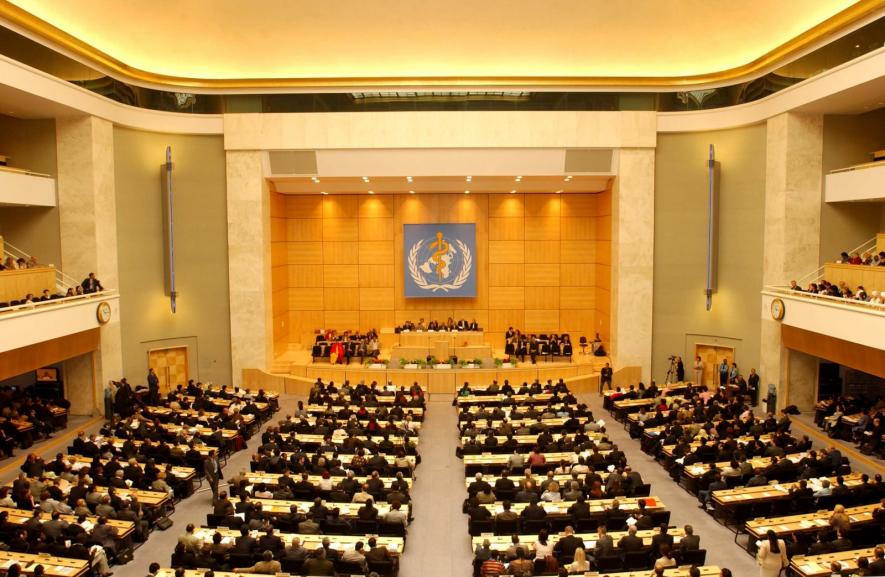
Image courtesy: NCD Alliance
The article below is part of the ‘WHO-Watch’ program, which is an effort of the People’s Health Movement. The programme works towards democratising global governance for health and involving young activists in following the governing body meetings of the World Health Organisation – the Executive Board meeting in January and the World Health Assembly in May – every year.
‘International Classification of Diseases and Related Health Problems’, commonly referred to as International Classification of Disease (ICD) is a global standard for classifying and reporting health conditions and diseases. The idea of a classification for statistical purposes was first proposed by Florence Nightingale. Later, the work on developing it was initiated by Jacques Bertillon and the Bertillon Classification of Causes of Death was introduced at a congress of the International Statistical Institute in Chicago in 1893. Recognising the necessity and efficiency, many countries started to adopt it. This laid the stone for a necessity to document and also revise the classification. The International Health Conference of 1946, New York entrusts Interim Commission of the WHO for reviewing and decennial revision of ICD in view of its mandate to set standards and assist countries across the world on matters of health. ICD-10 was endorsed in 1990, and became effective in 1994.
In a recent development, the World health organization (WHO), during its 144th executive board session, took note of the 11th revision of ICD and it will be presented before 72nd World health assembly in May 2019. The revision was long pending and will feed the country-level mortality and morbidity data requirements to progress towards achieving sustainable development goals (SDGs) and universal health coverage (UHC).
Revision process: From ICD-10 to ICD-11
The actual work for revision of ICD-10 started from 2007 necessitated by advances in medicine, science and information technology. The technical support was provided by Network of Collaborating Centres for the WHO family of international classifications. Various topic advisory groups were set for technical work, statistical modelling etc. The beta version of ICD-11 was released in 2012. This was followed by external review in 2015 and ICD revision conference in October 2016 at Tokyo, Japan. A field testing was done in 31 countries covering all the WHO regions.
Key highlights of the discussion
All the WHO members appreciated and commended the work to complete this magnanimous and data extensive task. The data standardisation was supported by all the members. The discussion mainly focused on financial and technical constraints of member states for implementation, inclusion of the supplementary chapter on traditional medicines and on a few inclusions or revisions of diseases like gaming disorders. The discussions also pointed at the inability of countries to collect data on morbidity and mortality owing to weak public health systems. Which, over the years, have been a target of austerity and structural adjustments.
Almost all the members states, who took the floor, raised the issue of financial burden in implementation of ICD-11. It was pointed out that the many members of Africa and South East Asia region are still implementing ICD-10. Thus, additional budgetary and technical support is required from WHO. Further, countries with poor digitalisation of health system will be left behind. So, an extension in implementation and support during the transition period was requested. The extension sought was opposed by some members, as it will create a non-uniformity. WHO secretariat responded that country-specific support is already rolled out. Secretariat further requested the members not to delay implementation as it took 2-25 years to implement ICD-10. Hence, countries should start planning and design implementation roadmap in advance.
Should ICD include traditional medicine/treatment modalities?
Divergent views were expressed on the inclusion of traditional medicine supplementary chapter. Developed countries except for Japan were unwelcoming on this development. The argument put forward was that ICD should include evidence-based medicine system only and traditional medicines are not used in these member states. Further, Finland raised legal issues due to the ambiguous definition and lack of standard classification of traditional medicines. It was requested not to equate evidence-based and traditional medicines.
On the other hand, Japan and China, along with AFRO, SEARO members etc., supported the move. The use of traditional medicines was highlighted, and its importance to the local health systems. WHO secretariat responded to this issue saying that ICD is a diagnostic tool with no reference on treatment modalities. The same rule also implies on the traditional medicines chapter. The inclusion of traditional medicines is set to achieve standardisation.
What about Gaming?
US opposed the inclusion of gaming disorder and pointed out that it’s premature, and that their experts believe that the evidence is insufficient. WHO secretariat explained that the inclusion is based on wider discussions, and is evidence-based as systematic reviews show it as a public health disorder. Also, dialogue with gaming industry has been initiated. The matter becomes yet another instance where the United States takes a position in line with the industry arguments on public health.
Way Forward
Members states commended inclusion of updated HIV and diabetes classification. The suitability of ICD-11 in primary healthcare settings was also noted. The focus of ICD-11 is on easy incorporation of new scientific knowledge and ensuring comparability of morbidity and mortality statistics. WHO secretariat stated that ICD-11 is a public good and milestone in era of digital technology.
WHO committed for continuous technical and training support for transition and implementation of ICD-11. WHO requested the member states for a timebound implementation. Medical Scientific Advisory Committee is set as a permanent committee for broader discussions and dissemination of information to the member states. Lastly, ICD-11 is right step in improving significantly, the quality of morbidity and mortality data available for planning, accountability and research in the field of health.
[The above article is compiled with contributions from Anna Peiris (UK), Giulia Loffreda (Italy/UK), Sarai Keestra (Netherlands/UK), Alfenur Abu Kufa (Ethiopia), Damir Martinovic (Croatia), Stuti Pant (India/UK), Maninder Pal Singh (India) and Alexandre Gajardo (Switzerland).]
Also read: World Health Assembly: Several Countries Pledge to Improve Access to Assistive Technologies
Get the latest reports & analysis with people's perspective on Protests, movements & deep analytical videos, discussions of the current affairs in your Telegram app. Subscribe to NewsClick's Telegram channel & get Real-Time updates on stories, as they get published on our website.










